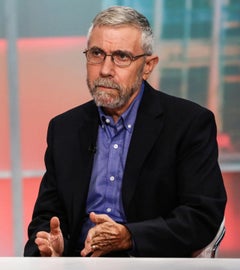MI SELECCIÓN DE NOTICIAS
Noticias personalizadas, de acuerdo a sus temas de interés

Mentioned one of Charlie Kindleberger’s aphorisms in a recent blog post, about taking the first bite of the cherry. Here’s another one of the economist’s aphorisms: “Anyone who spends too much time thinking about international money goes a bit mad.” What he means by that is that there’s something about the subject of reserve currencies that makes people want to believe that it’s a really important issue - that the dollar’s special role is a vital part of American power. So you have spectacles like Secretary of State John Kerry and President Obama declaring that one big risk in rejecting the recent deal with Iran (which I very much support) is that the dollar’s reserve-currency status would be threatened. No it wouldn’t, and anyway, who cares?
What does America gain from the dollar’s special role? You often find people declaring that it’s only thanks to the dollar’s power that the United States has been able to run persistent trade deficits - people have to take our money, you see. But even a quick glance at international balance of payments statistics reveals that countries whose currencies play no exceptional role whatsoever are perfectly capable of running deficits over long periods of time; all that matters is that they are perceived as reliable debtors who offer good investment opportunities.
So what are the advantages of owning a reserve currency? You get to borrow in your own currency - but then, so do other countries (again, this comes down to your reliability, not your currency’s special status). And there’s nothing in the data suggesting that you can borrow more cheaply than other safe borrowers.
What you’re left with, basically, is seigniorage - the fact that some people outside your country hold your currency, which means that, in effect, America gets a zero-interest loan corresponding to the stash of dollar bills (or $100 bills mainly) held in the hoards of tax evaders and drug dealers around the world. In normal times, this privilege is worth something like $20 billion to $30 billion a year; that’s not a tiny number, but it’s only a small fraction of 1 percent of America’s gross domestic product.
The point is that while reserve-currency status may be politically symbolic, it’s essentially irrelevant as an economic goal - and it’s definitely not worth distorting policy to achieve.